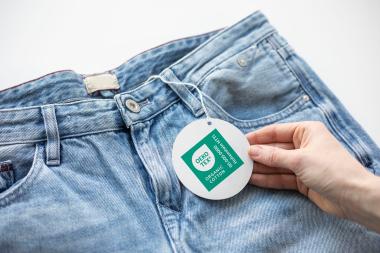Südwolle: Fall/Winter 2024/25 Collection
- Technical innovation and natural fibres, for a broader definition of sustainability
The weaving collection further develops the themes that have emerged in recent seasons, interpreting them with a view to long-term sustainability.
In harmony with the Südwolle Group’s identity and values, research and technical innovation are combined with a high level of quality. Wools, almost all certified, are enriched by a significant level of performance that continues to evolve. The production process attempts to limit carbon footprint, as sustainability is the key principle guiding all the company’s choices.
The ability to offer yarns made from selected natural raw materials is in harmony with today’s sustainable buying habits, with a preference for garments and accessories that can be worn at any time of year. In contrast with the logic of fast fashion, today’s buyers, led by younger generations with a focus on the values behind their fashion choices, tend to choose items that can be expected to last longer, decreasing the environmental impact of textile wastes and throwaway fashion.
In casual wear too, the importance of comfort and feeling at ease is reconciled with the desire to wear items of good taste and quality. The new formalwear includes carefully cut garments made of materials guaranteeing fit, comfort and durability. A widespread focus on these factors makes for more conscientious, reasoned purchases, less subject to impulse buying.
Südwolle interprets the new interest in heritage, leading to the emergence of the phenomenon of quality second-hand, with a return to its core business and essentials, in a new sustainable version using certified fibres, chlorine-free anti-shrinkage treatments and long-lasting products that can be washed at home at low temperatures.
One of the most recent results of the company’s technical innovation is the new OTW® line of yarns for weaving produced using Omega Twist® technology, developed and patented by the Südwolle Group, producing yarns offering outstanding performance in terms of reduced pilling and greater elasticity, tenacity and durability.
Suedwolle Group



























